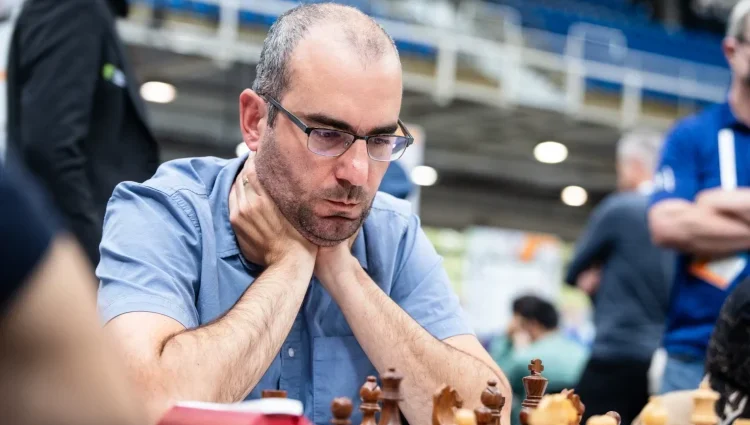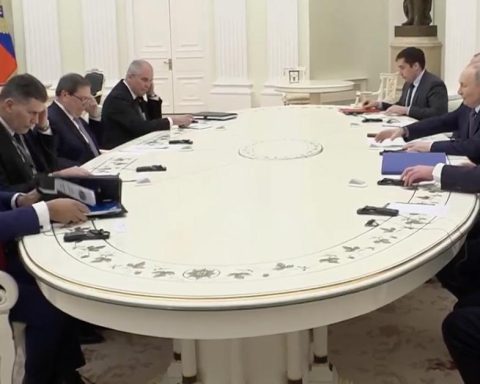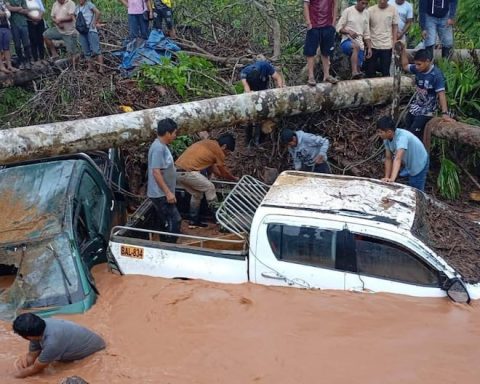N
or there are words, much less rhetoric, which exempts us from encountering a viscous, opaque reality, which does not admit presumptions of understanding or bravado to project it. We are stunned or in the swamp and, for some colleagues who cultivate pessimism, on the edge or already in the abyss.
Singing the glories of the gladiator, victor of a thousand battles against the oligarchies and the corrupt, has become a tiresome and pathetic practice for believers. Swearing at the worship officiants, or at the patriarch himself, has lost all mobilizing effect to the point that the formally existing oppositions are unable to go beyond the dithyramb. Their calculations are ridiculous and their will seems more like an accumulation of disappointments and laments for lost opportunities.
We could propose, once again, that we are sailing aimlessly, adrift or adrift, but seen in this way, the situation is populated by multiple voluntary, even optimistic, achievements and perspectives that politics cannot ignore. Even less so those that claim to be democratic.
The depressing and ridiculous spectacle of vote-trafficking and bad tastes, customs and habits that the members of Congress, particularly in the Senate, have dealt us should not be left in any vague and imprecise yesterday. It is essential not only to take note, but to call for the construction of articulated and unified demands for the revised and reconstructed democratic demand. We have to demand clear and punctual accounts from the parties, the rulers and those who oppose them, together with their host of civil society organizations, simply because the citizens are the first creditors of the commitment and subsidy that these parties earn and should earn from these organizations.
Then, but very close by, comes the accumulation of unresolved problems in political economy and social subsistence, community life and the many mental illnesses, which are little recorded and, I fear, less understood. We do not have good and effective remedies, nor do we have the capacity and infrastructure to hospitalize.
Recognizing and admitting, to the point of reaching a true and consistent self-criticism, should be the theme of the inaugural sessions of the Congress of the Union, before deputies and senators address the proposals of the Treasury on a fiscal consolidation
which seems more like an act of contrition before the Almighty. It is said that we spend too much and many add that we spend badly. But, in the case of the battered public finances, it seems essential to be very careful not to throw the baby out with the bathwater.
In these and other sours things to doWe have come a long and bitter road which, in our case, is not, has not been synonymous with learning. Much administrative talent, in programming and resource allocation seems to have been lost and, as we have had to learn in these sad and long years of hardship and excess, these are losses that cannot be compensated by the will of the leader and the loyalty of the public servant. Hence the urgent need to begin to weave a network of wills for understanding and the assumption of commitments that last and can be renewed until reaching the forgotten and vilified reform of the State, which has not been done with votes and majorities because its core is the will and the disposition to agree and give knowledge and rationality the central and decisive place they deserve.
Boasting originality in the government of the State serves very little purpose and, if it becomes a political practice of those in charge, it is lethal when it comes to weathering the coming storms. We urgently need the scarce, very scarce, resources that the financial flank of the State knows, as well as those that have been absent from the daily exercise of public service. Restoring their dignity and credibility is a priority mission for legislators and leaders of all parties, although an organized presence of universities and professional research entities is not a bad idea.
Ultimately, it must be acknowledged, what we are facing is a redistribution of the State and its ways of governing itself and governing us, because the current ones are reaching a dangerous point, unsimilar to any other moment throughout the difficult 20th century. Given our devilish complexity, it is essential that all this takes place in a context of laid down arms and cooperative spirits.
Difficult and reluctant, battered by disbelief and mistrust, society has to begin to chart paths and routes through seas that we can navigate. And to do so there is no other way than through conversation and the conviction that the other, adversary or enemy, just like oneself, has something to say.
















